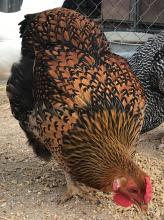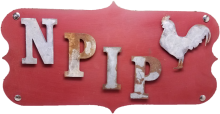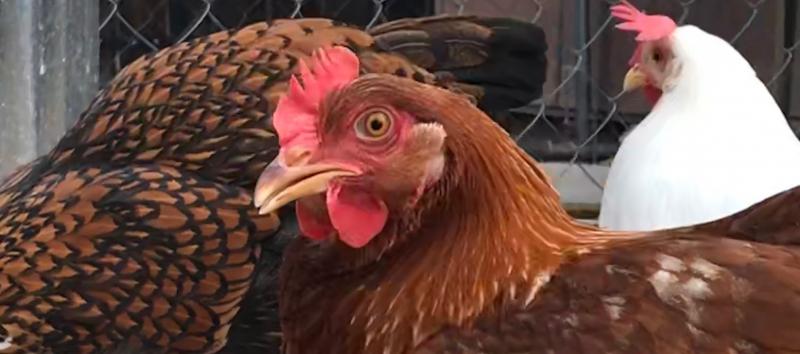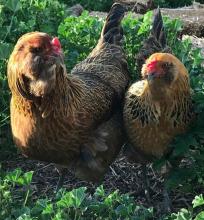What is NPIP?
The National Poultry Improvement Plan (NPIP) was established in the early 1930's to provide a cooperative industry, state, and federal program through which new diagnostic technology can be effectively applied to the improvement of poultry and poultry products throughout the country. The development of the NPIP was initiated to eliminate Pullorum Disease caused by Salmonella Pullorum which was rampant in poultry and could cause upwards of 80% mortality in baby poultry. The program was later extended and refined to include testing and monitoring for Salmonella typhoid, Salmonella Enteritidis, Mycoplasma Gallisepticum, Mycoplasma Synoviae, Mycoplasma Meleagridis, and Avian Influenza. In addition, the NPIP currently includes commercial poultry, turkeys, waterfowl, exhibition poultry, backyard poultry, and game birds. The technical and management provisions of the NPIP have been developed jointly by Industry members and State and Federal officials. These criteria have established standards for the evaluation of poultry with respect to freedom from NPIP diseases.
Courtesy of: www.poultryimprovement.org
Arizona’s Part in NPIP
NPIP Program Standards are found at: www.poultryimprovement.org
The NPIP program is divided into subparts:
B: Egg-Type Chicken Breeding Flocks and Products
C: Meat-Type Chicken Breeding Flocks and Products
D: Turkey Breeding Flocks and Products
E: Waterfowl, Exhibition Poultry, and Game Bird Breeding Flocks and Products
F: Ostrich, Emu, Rhea and Cassowary Breeding Flocks and Products
G: Special Provisions for Primary Egg-Type Chicken Breeding Flocks and Products
H: Special Provisions for Primary Meat-Type Chicken Breeding Flocks and Products
J - Special Provisions for Egg/Meat-Type Game Bird and Raised-for-Release Game Bird Breeding Flocks and Products
Arizona currently covers Subparts B, E, and J
Arizona's NPIP program is growing all the time. Come join! Help us grow by becoming a NPIP participant!!!
Diseases Monitored and Tested By Arizona NPIP
Each Subpart of NPIP tests for different diseases. The NPIP program in Arizona test for the following diseases:
- Pullorum- Typhoid (P-T) required for program participation
- Avian Influenza (AI) available as an additional certification
In Arizona, the majority of our NPIP flocks are Subpart E participants. Testing for Pullorum-Typhoid (P-T) with optional Avian Influenza testing is the responsibility of the flock owner. Disease testing gives them the ability to move their birds and hatching eggs across state lines in compliance with destination state importation rules. NPIP participant assume the costs of flock-side tests, laboratory tests and veterinarian fees.
Initial P-T testing for enrollment of Subparts E and J is dependent on the number of birds in your flock. Flocks with 1-300 birds will have all of their flock tested. Flocks with 301 birds or more will have 300 birds of their flock tested. Ongoing testing to maintain program status depends on flock additions.
Benefits of Becoming a NPIP Participant
Some NPIP benefits are:
- NPIP is a voluntary program that helps protect all aspects of the poultry industry.
- NPIP monitors diseases that might impact your flock.
- Training to perform Pullorum-Typhoid and Avian Influenza testing is provided at the initial visit.
- One-on-one biosecurity session with an AZDA agent is also provided at the initial visit.
- Access to the NPIP database and management document tools for free.
- Certification as an NPIP participant can be a promotional tool for poultry and hatching egg sales.
- NPIP fulfills many poultry show and fair requirements. (Check with destination states for additional state requirements.)
- Participants receive direct updates from AZDA during an emergency situation or disease outbreaks in Arizona.
How to Become a NPIP Participant
Individuals interested in joining the NPIP Program may fill out the forms attached below and submit to the AZDA by email [email protected], fax to 602-542-4290, or by calling 602-542-4293.
National Premises ID Application
Participation Agreement
Once all completed forms are received and processed, an AZDA agent will contact you and schedule an appointment for your initial visit. This visit will include testing, certification, inspection and education. What are you waiting for? Let’s get your flock on its way to being a NPIP flock!
Startup Cost for NPIP
NPIP is a voluntary program and, currently, Arizona does not charge a fee for participation in NPIP. However, each participant is responsible for providing their own testing equipment and supplies. These may be purchased online or through a dealer. Pricing will vary depending on the size of your flock and were the supplies/equipment are purchased from.
How Do I Keep My Flock Healthy?
Biosecurity, Biosecurity, Biosecurity!
Biosecurity is the key to keeping your poultry healthy. "Bio" refers to life, and "security" indicates protection. By following good biosecurity practices, you can reduce the chances of an infectious disease being carried to your farm, your backyard, your aviary, or your pet birds, by people, animals, equipment, or vehicles, either accidentally or on purpose. Please, try out the links the steps to get a better understanding of biosecurity.
1. Keep Your Distance.
2. Keep It Clean.
3. Don’t Haul Disease Home.
4. Don’t Borrow Disease from Your Neighbor.
5. Know the Warning Signs of Infectious Bird Diseases.
6. Report Sick Birds.
Courtesy of:
- https://www.aphis.usda.gov/aphis/ourfocus/animalhealth/animal-disease-information/avian-influenza-disease/birdbiosecurity
- https://www.aphis.usda.gov/aphis/ourfocus/animalhealth/animal-disease-information/avian/defend-the-flock-program/dtf-resources/dtf-resources
It is recommended that you establish a relationship with a veterinarian for the general health and welfare of your flock. The NPIP program and state veterinarian’s office does not provide veterinary care nor are vaccinations essential to participate in the program.
Poultry veterinarians are scattered throughout Arizona, however; it is most likely that veterinarians that deal with herd health or exotic animals can service your poulty. Finding a veterinarian that you trust and feel comfortable with is essential to keeping your flock healthy.
AZDA Staff
Dr. Ryan Wolker, State Veterinarian
Phone Number: 602-542-4293
Email: [email protected]
Vacant, Assistant State Veterinarian
NPIP Coordinator
Phone Number: Vacant
Email: [email protected]
Contact us by way of the following:
Email: [email protected]
Phone: (602) 542-4293 or Fax: (602) 542-4290
If you’re raising the chickens and eggs for your own use, you may not have to pay the state sales tax (transaction privilege tax) when buying feed. A law (HB 2326) takes effect August 6, 2016 only affects state taxes, not local taxes. Check with the feed dealer for more information.
-
Food Access
Finding Healthy Food in ArizonaConnecting people, food, and resources through partnerships with producers, non-profits, for-profits and government.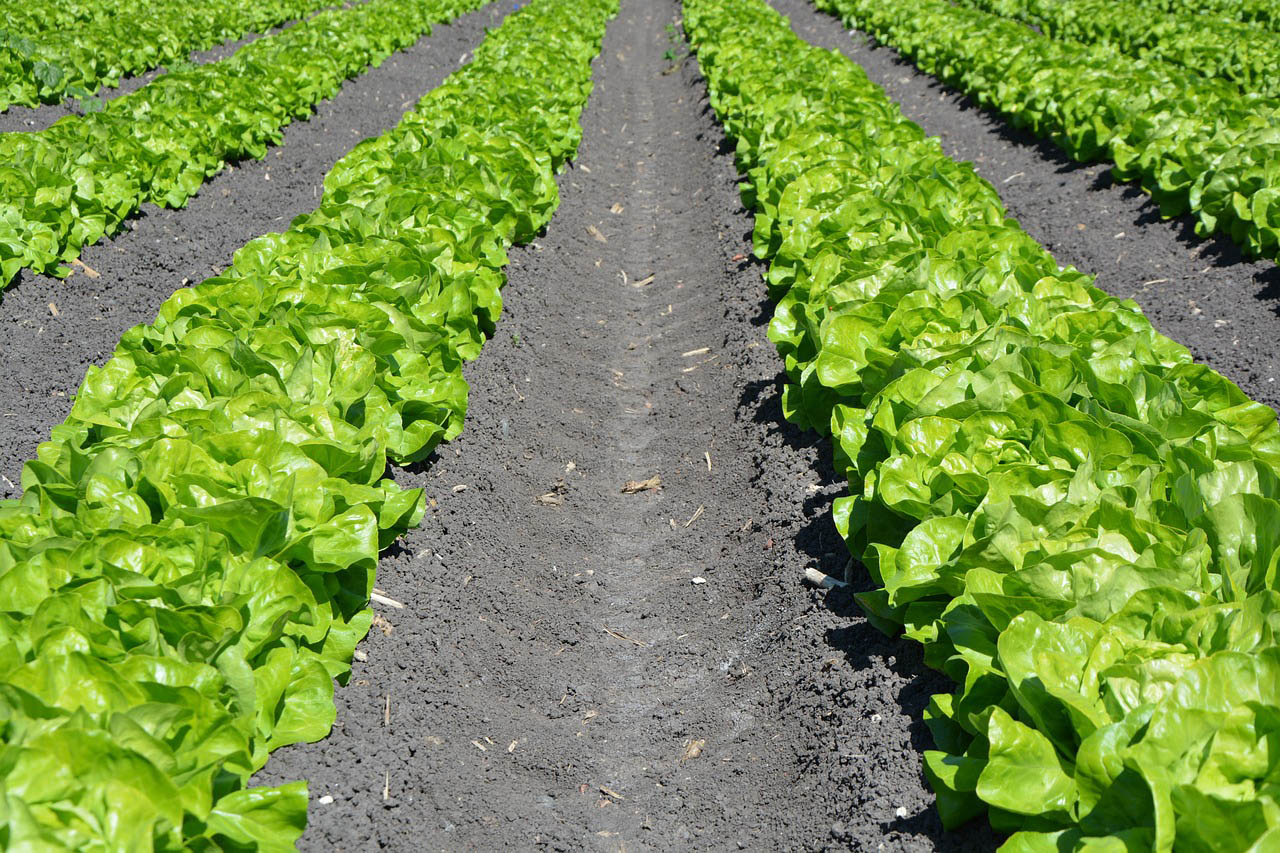
-
Get a License
Apply For, Renew, or look up a LicenseEnter our Licensing and Payment System then use the filter at the top to find the license you want to apply for or renew or find existing license information, including CEU's
